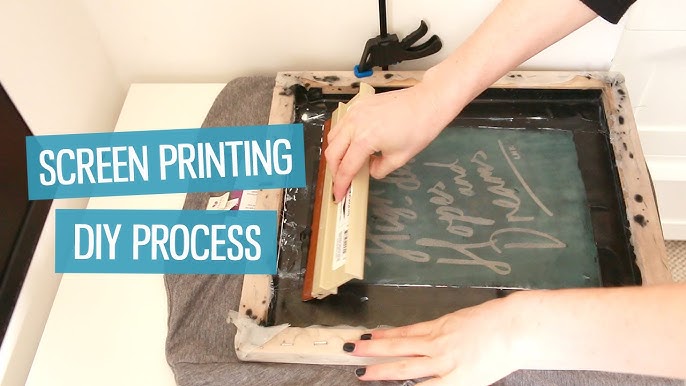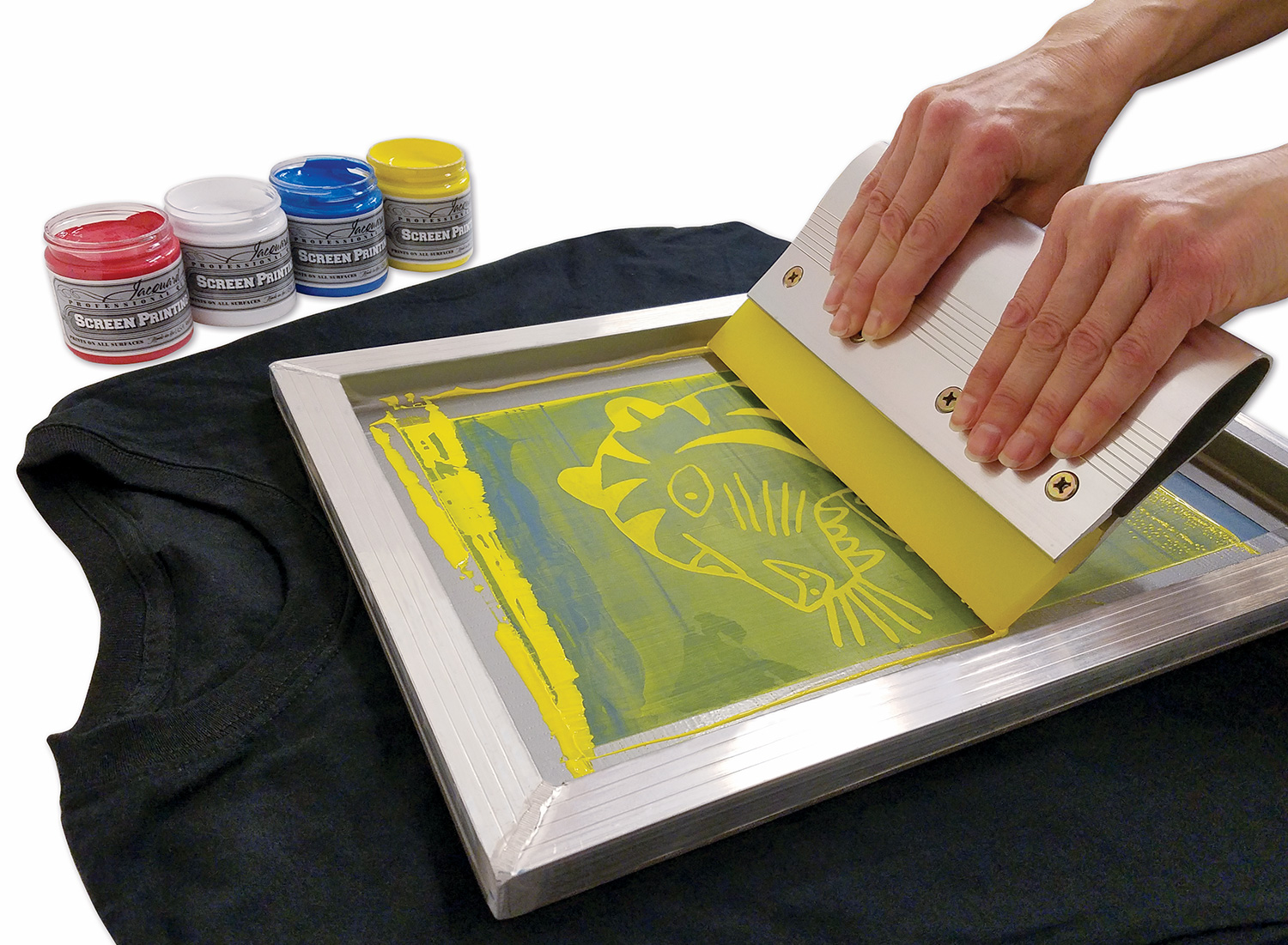ChatGPT said: What customers are saying in 10:9 Design reviews: insights
Wiki Article
The Necessary Guide to Understanding Screen Printing and Its Versatile Utilizes
Screen printing has a rich background that dates back to old times, developing right into an advanced technique utilized across different sectors today. This overview explores the intricacies of the screen printing procedure, outlining its applications in style, home, and advertising and marketing design - 10:9 Design Embroidery. Recognizing these principles can open innovative possibility for both commercial and creative jobs. The complying with sections will certainly reveal necessary suggestions and methods to improve one's screen printing endeavorsThe History of Screen Printing
Screen printing has roots that trace back centuries, its evolution shows the artistic and technical developments of different societies. Coming from in ancient China, the method was initially utilized for enhancing fabrics and later spread to Japan, where it came to be important to Ukiyo-e woodblock printing. The approach moved to Europe in the 18th century, where it gained appeal among craftsmens and business printers. The innovation of photo solution in the 20th century changed screen printing, enabling for more intricate layouts and better efficiency. Artists like Andy Warhol additionally propelled its appeal, utilizing the tool to develop iconic jobs that blended commercialism and art. By the late 20th century, screen printing had actually developed itself as a versatile method, used in vogue, marketing, and fine art. Today, it remains to progress, incorporating electronic innovation and broadening its applications across numerous sectors.The Screen Printing Refine Explained
Screen printing transforms creative visions right into substantial designs with a collection of exact steps. A photo is produced and after that moved onto a screen, commonly made of fine mesh textile extended over a structure. A light-sensitive emulsion is related to the screen, which is subjected to light, setting in areas not covered by the image. After rinsing the unhardened emulsion, a pattern is created.Next off, the screen is placed over the substratum, whether it be textile, paper, or another material. Ink is after that pressed through the open locations of the stencil utilizing a squeegee, transferring the style onto the substrate listed below. This procedure can be repeated for numerous colors, needing different displays for each and every hue. Finally, the published thing is treated utilizing warmth to assure the ink adheres effectively, resulting in a durable, vibrant design on-line.
Kinds Of Screen Printing Techniques

Furthermore, specialty techniques, such as discharge screen printing, get rid read this post here of color from the textile to create softer prints, while foil screen printing uses metallic aluminum foil to attain a shiny finish (10:9 Design Texas). Each strategy provides distinctive features, satisfying numerous creative demands and manufacturing ranges, ultimately increasing the opportunities within the screen printing domain name
Applications of Screen Printing in Various Industries

Additionally, the signs and advertising and marketing sectors use screen printing for creating distinctive displays and banners. This method permits strong colors and elaborate designs that catch focus. In electronics, screen printing is employed for using conductive inks to motherboard, crucial for element links. The home décor industry welcomes screen printing to produce distinct layouts on fabrics and wall surface art. In general, screen printing works as an important tool across diverse areas, enhancing items with personalized and visually attractive graphics.
Tips for Effective Screen Printing Projects
While undertaking a screen printing job, careful interest to detail can significantly enhance the final outcome. Picking top quality materials is necessary; this includes the screen, inks, and substratums. Using suitable mesh matters can affect ink deposition and detail resolution. Preparation is just as crucial; comprehensive cleansing of screens and proper exposure times assure crisp prints.Next off, precise enrollment is critical for multi-color prints. Making use of alignment tools can aid accomplish precise layering. Additionally, screening prints on scrap materials prior to manufacturing assists identify possible issues without squandering resources.

Frequently Asked Questions
What Products Are Best for Screen Printing on Fabric?
Cotton and polyester blends are excellent for screen printing on textile because of their toughness and ink absorption. In addition, specialized fabrics like silk or canvas can produce one-of-a-kind appearances and coatings, improving the general layout quality.Exactly how Do I Clean and Maintain Screen Printing Tools?
To keep and cleanse screen printing tools, one ought to regularly wash screens with proper solvents, check mops for wear, lube moving parts, and shop all items in a completely dry, dust-free atmosphere to prolong their life expectancy.What Are the Ecological Impacts of Screen Printing?
Screen printing can have considerable environmental impacts, including chemical waste from inks and solvents, water use during cleansing processes, and power usage. Lasting methods and eco-friendly products are necessary for lessening these adverse results.Can Screen Printing Be Done at Home Efficiently?
Screen printing can be effectively done at home with the right materials and strategies. Enthusiasts can produce top quality prints, though success relies on their skill level, tools, and understanding of the process involved.
What Are the Prices Connected With Starting a Screen Printing Company?

Starting a screen printing company entails prices for devices, materials, and workspace. Initial expenditures generally vary from a few hundred to several thousand bucks, depending upon the range, top quality of machinery, and wanted manufacturing capability.
Screen printing has a rich background that dates back to ancient times, advancing right into a sophisticated strategy made use of across different industries today. Another method, rotary screen printing, utilizes cylindrical screens, helping with constant printing on material rolls, therefore improving performance for large productions. In addition, specialized methods, such as discharge screen printing, eliminate color from the textile to develop softer prints, while aluminum foil screen printing applies company website metal foil to attain a glossy coating. In the fashion industry, screen printing is widely made use of to create lively designs on apparel, allowing brand names to showcase their special styles. Cotton and polyester blends are perfect for screen printing on textile due to their toughness and ink absorption.
Report this wiki page